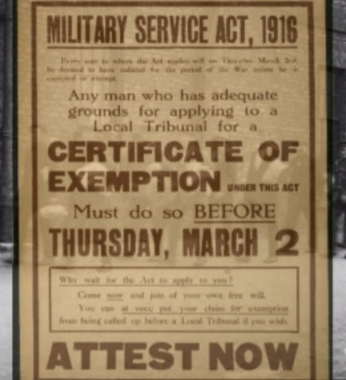1916 saw the world at the height of war. Millions of young men were in the trenches - and their letters and poems help tell the story of the conflict. That same year, on March 2, 1916, parliament passed the Military Service Act. Some people protested, but it was signed into law, and not going to war became a privilege, not a right.
More than two million British men were drafted into the army through conscription, but one man from Bristol was among those who refused - William Gould voluntarily went to prison rather than going to France support the war.
He thought that it was absolutely wrong for the working classes in various countries to be sent off to shoot one another, for somebody else's benefit.
Men who felt they had a conscientious objection to serving in the military would apply to a tribunal for an exemption. A panel would assess whether the applicant had a genuinely held opinion - and they have a mixed reputation in terms of the level of justice or injustice they actually provided.
Some of the reports of tribunal hearings certainly suggest that at least some of the members had very fixed views as to objectors. You sometimes have statements that very clearly show that a particular member was going to refuse any level of exemption to any conscientious objector.
Source: ITV West
